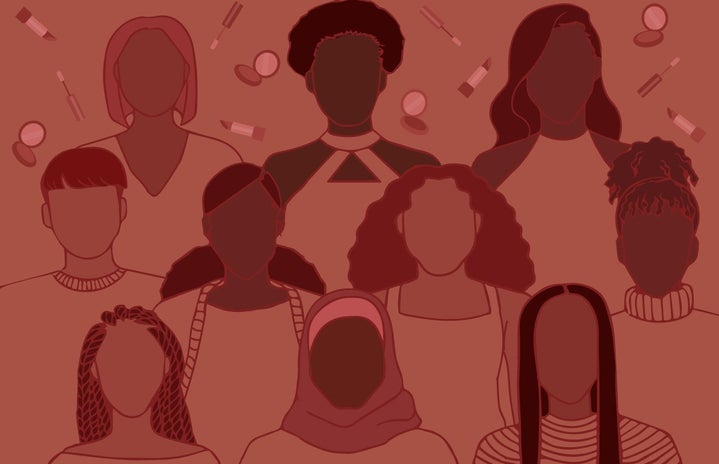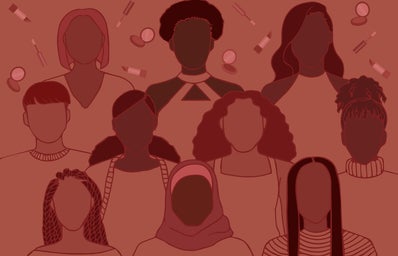I recently had the honor of interviewing Manda Zand Ervin, the author of the book The Ladies’ Secret Society. It wasn’t long before I realized that her being a published author is the least impressive thing on her list of accomplishments. She is not only an activist but a woman of power and vast knowledge who symbolizes feminism in one of the countries where women are seen and treated as inferiors. That country also happens to be where I’m from: Iran.
During this short but sweet and unforgettable interview, I had the chance to ask Mandana questions that I considered to be important to her work and to our readers. Because of this, I stayed away from small talk and what I considered to be trivial details. However, a little bit of background information about the author might be useful and quite intriguing before we dive into the rest of the interview. Mandana was born into a not-so-religious, middle-class family from Lorestan and lived with her two sisters and her parents. Because of this modern ideology in her family, her father was the first feminist in their lives and always taught them how to empower themselves.
First, I asked Mandana why she wrote the book and what her main objective was. For Mandana, it’s always been important to show people that “our culture, our history… and what [Iranians] have contributed to human civilization as of today,” which has unfortunately, been neglected and undervalued. There are not many people who truly know Iranians and what our traditions consist of because they are misinformed or simply ignorant about our situation or our regime; mainly because we are not a Western nation. This book has been her way of proving to people that what they see in the media or what they hear in the news is far from what our country stands for. She began by discussing how despite popular belief, Iran is a matriarchal society “founded and established by female gods” and also possesses a gender-neutral language.
With this book, she goes through the history of Iran and how a large majority of women have contributed to improving the country’s society and government as a whole. She has written this beautiful quote: “The women featured in this book are only a small sample of women-gods, only a drop of the ocean’s water” (Ervin, 2020, p. 3), which explains the endless and incalculable parts that the women of Iran have played. Besides the women who worked in the navy, the powerful queens who were actually known as “Shahs” — translated to “king” from Persian — and the women archers, she also spoke about the history of Iran as a whole. She spoke about the rich art and history of the country with the most brilliant philosophers and poets.
Then, as I had read a little about the author herself, through the introduction of her book, I wondered how it was that she had acquired all this courage to become who she is despite everything that has always worked against her. It’s important to acknowledge that Mandana worked in the government before the Islamic revolution that took place in 1979. She explained that where she comes from, the tribes that exist are quite patriarchal and devoted to their traditions. So originally, that’s where her family’s pride and courage come from. Her grandmother always aimed to educate her grandchildren about the history of her motherland. And she explained to me that her grandfather named her Mandana after the mother of Cyrus the Great because he saw great things in her and wished to see her fulfill her legacy. We talked about how due to the great support system that she has grown up and the open-mindedness of her family, ever since she was a little girl, she felt she was destined for great things and was taught to appreciate her country’s value.
I also asked her, if she had any words of wisdom for young girls out there that wish to fight for something bigger than themselves but simply haven’t the courage yet. It was interesting for me to see if she had any advice for girls my age, who do really wish to see and create change in the world but might be overwhelmed at the thought of where to start. And to that, she answered with one keyword: “commitment.” She mentioned how if a person truly wishes to pursue something, they will make their own pathway to what they wish to achieve. “It just needs commitment, and a belief and compassion.” The important thing is to start from scratch and build your way up to the top, as she put it.
Besides the things I have written in this interview, I had a lovely chat with Mandana, and I am so honored and proud to have met and discussed political and social matters with such an educated and accomplished woman. I came to know her as a human being, her political ideology and her concern and passion she has for the people of Iran.
“I was a symbol of the emancipated and equal Iranian women that The Ladies’ Secret Society had struggled to support.” (Ervin, 2020, p. 17) This quote taken from the introduction of her book, describes her better than I could put into words. To know and have talked to such a woman, is an absolute pleasure and I hope she inspires everyone who knows her, the same way she did me.
Interested in reading Mandana’s story? Check out:



